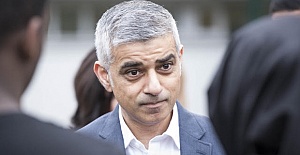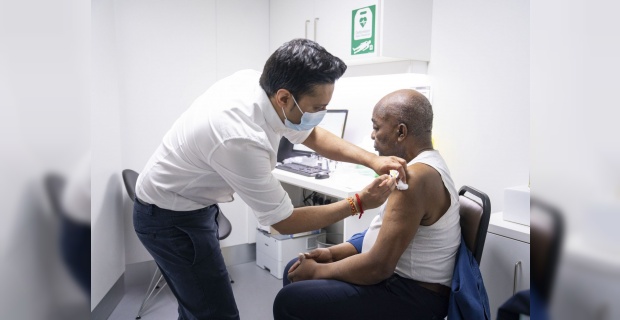Results that show the Oxford-AstraZeneca vaccine may reduce the spread of coronavirus have been hailed as "absolutely superb" by the health secretary. Matt Hancock said the study shows "vaccines are the way out of this pandemic". It is the first time a vaccine has been shown to reduce transmission of the virus. The UK has given a first Covid jab to 9.6 million people so far. The results of the study, which has not yet been formally published, suggest that the vaccine may have a "substantial" effect on transmission of the virus. It means the jab could have a greater impact on the pandemic, as each person who is vaccinated will indirectly protect other people too.
Mr Hancock called the study "really encouraging" on Twitter, adding that the results were "absolutely superb".
Speaking on BBC Breakfast, he said this latest analysis showing the vaccine reduces transmission would "help us all get out of this pandemic". The study by the University of Oxford, where the vaccine was developed, measured the impact on transmission by testing for asymptomatic infections, swabbing participants every week in addition to recording when anyone fell ill with Covid-19.As well as showing an effect on transmission, the study found the vaccine offered 76% effective protection from a single dose for three months.With no fall in protection during the three-month period, the researchers said the results supported gaps between first and second doses of between four and 12 weeks.The effectiveness of the vaccine increased with a longer gap of 12 weeks before the booster jab.When the second dose is given, the study found the level of protection from the Oxford-AstraZeneca vaccine rises to 82%.


 After Nesil Caliskan a by-election will be held in Jubilee ward in Enfield
After Nesil Caliskan a by-election will be held in Jubilee ward in Enfield Publishing the analysis, Labour’s Cllr Ergin Erbil said Everybody in Enfield deserves basic rights
Publishing the analysis, Labour’s Cllr Ergin Erbil said Everybody in Enfield deserves basic rights Gaza-Israel conflict Statement from Cllr Ergin Erbil, Leader of Enfield Council
Gaza-Israel conflict Statement from Cllr Ergin Erbil, Leader of Enfield Council Cllr Ergin Erbil was elected as the new Leader of Enfield Council
Cllr Ergin Erbil was elected as the new Leader of Enfield Council Sustainable Development and ESG, Will This Become the Course for Turkic World
Sustainable Development and ESG, Will This Become the Course for Turkic World Thousands evacuate Santorini as more earthquakes strike island
Thousands evacuate Santorini as more earthquakes strike island Rauf Raif Denktas and Dr. Fazıl Kucuk II. International Cyprus Studies
Rauf Raif Denktas and Dr. Fazıl Kucuk II. International Cyprus Studies We continue our promotional activities in Europe, primarily in the UK said Ahmet Aras
We continue our promotional activities in Europe, primarily in the UK said Ahmet Aras Inzaghi stated that they felt the absence of our national player Hakan Çalhanoğlu
Inzaghi stated that they felt the absence of our national player Hakan Çalhanoğlu Besiktas are said to be in advanced talks to secure the Norwegian coach
Besiktas are said to be in advanced talks to secure the Norwegian coach Footballers are celebrating after Enfield Council officially opened a pitch
Footballers are celebrating after Enfield Council officially opened a pitch  Pep Guardiola's Manchester City beaten by Juventus
Pep Guardiola's Manchester City beaten by Juventus London mayor says 'Brexit was a mistake,' vows to rebuild ties with Europe
London mayor says 'Brexit was a mistake,' vows to rebuild ties with Europe Trade insights, and global growth at the heart of IFE’s Exporters Hub programme
Trade insights, and global growth at the heart of IFE’s Exporters Hub programme  TfL celebrates National Apprenticeship Week
TfL celebrates National Apprenticeship Week Enfield Council will champion a new Lane Rental Scheme
Enfield Council will champion a new Lane Rental Scheme




















